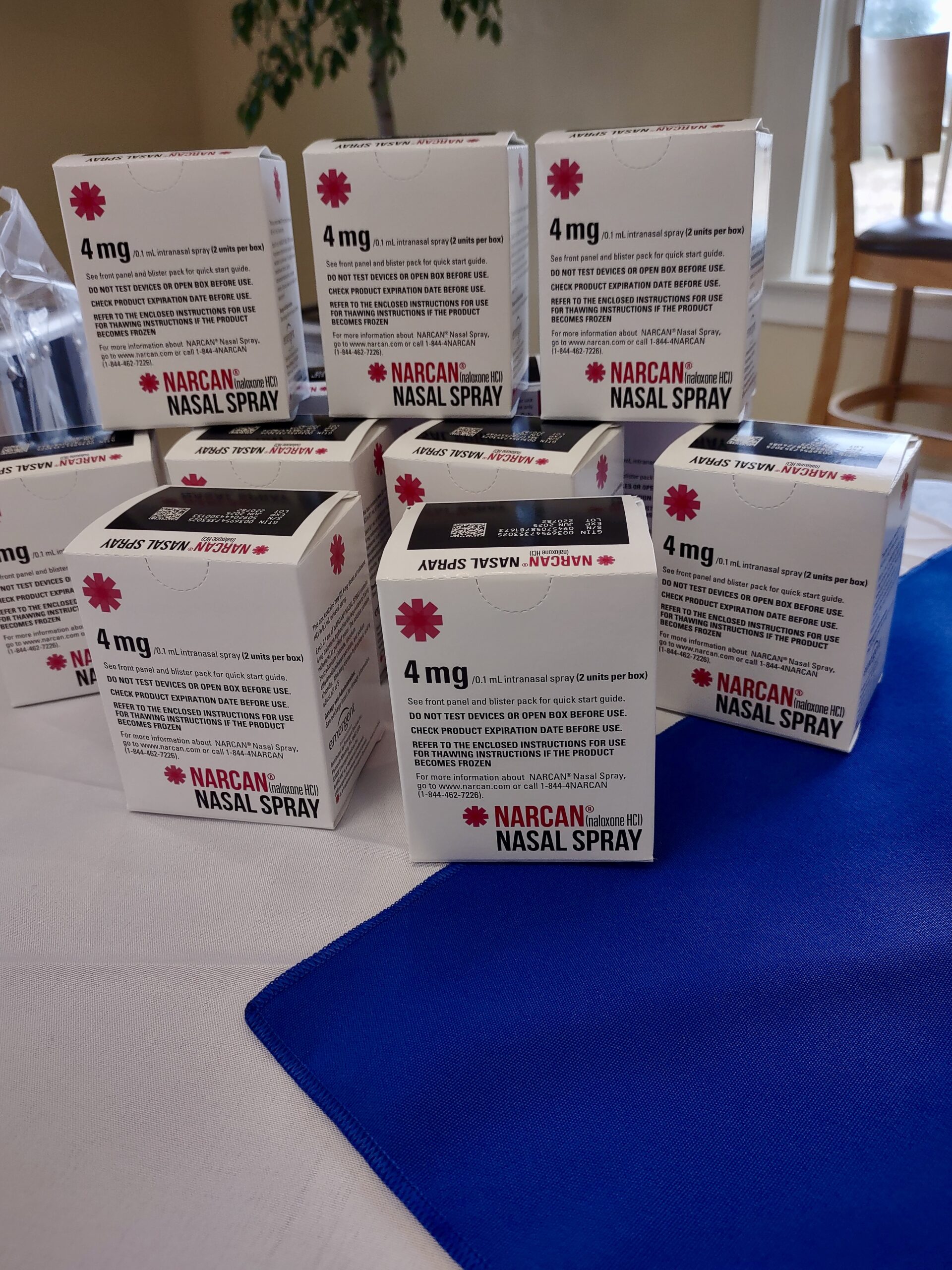Within a few weeks of starting in my position at the Council, I met Cape Fear Valley Health Community Paramedic Chris Dudley at a health resource event in Fayetteville. Unlike the other vendors offering gifts of hand sanitizer, mints, and pens, Dudley and a coworker greeted guests with a table that contained pink, white, and black boxes and a sheet if attendees wanted to sign up for a training being offered.
“Well exactly how long will it take? I asked, thinking I would need to check my schedule for hours-long training.
Dudley explained the training wouldn’t take long and all I had to do was complete the form. I watched as he retrieved the Narcan Nasal Spray, a prescription medicine designed to reverse the effects of an opioid. Although the canister reminded me of my asthma medication, I would learn the substance in Dudley’s hands could also be considered a “rescuer” or be the difference between life and death. As a paramedic, Dudley and his colleagues administer this treatment when someone is in the midst of an overdose emergency.
Having previously pastored a church in Washington, D.C., a city with its own reported issues of crime and substance abuse, I would have never suspected that it would be here in North Carolina that my clergy bag of anointing oil, mints, and a Bible might now also need to contain Narcan.
These days, it doesn’t matter whether you are serving a rural church or one in an urban setting, it’s likely the impact of substance use and overdose have found its way onto your congregation’s prayer concerns. Thus, we cannot only see the matter as something to only address when a congregant requests prayer for a family member or we’re standing over a coffin eulogizing a young adult who didn’t get to the emergency room in time after experimenting at a party.
“In Cumberland County, we have had more emergency room visits than anybody in the state of North Carolina for opiates,” said Glenn Adams, a member of the Cumberland County Board of Commissioners, in a Feb. 20, 2023, ABC11 WTVD-TV interview about the opioid crisis and intervention efforts.
For those who are resuscitated at the ER, how do faith communities respond to their needs and those family members who seek clergy out for spiritual care? What do we say? What resources are we aware of or have identified for referral?
Although we won’t solve the entire opioid crisis within Cumberland County during our time together at our next Clergy Breakfast in Fayetteville, my prayer is that we’ll begin meaningful conversations that will result in clergy recognizing how to better engage with members of our community and compassionately discuss substance use.

